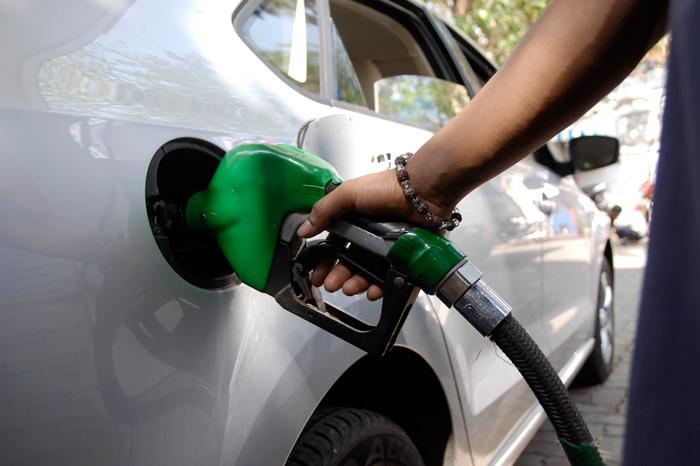New facts have emerged that for retaining the pump price of petrol at N145 a litre, the Nigerian government, through the state owned oil firm, the Nigerian National Petroleum Corporation (NNPC) losses a whopping N774 million daily on the estimated 50million litres of petrol consumed in the country.
While the open market price of a litre of petrol is now more than N171 given the prevailing crude oil price and landing cost, Nigeria which operates a regulated petrol retail regime insures this loss as the country fails to arrive at a definite deregulation policy, even as the president Muhammadu Buhari-led government also claims it does not pay subsidy on petrol.
Private marketers have abandoned importation of petrol since October 2017 when crude prices began gaining at the international market and as the retail price remain fixed in the country, leaving the NNPC as sole importer of the product.
In a statement Sunday, Group Managing Director of the Corporation, Dr Maikanti Baru, said for keeping pump price at N145 a litre, the NNPC was under recovering N774 million on the 50 million litres consumed daily.
However, he blamed cross-border smuggling of petrol to neighbouring countries, for the increase of daily consumption rate of petrol from an average of 35 million litres to 50 million litres. This he says makes it difficult to sanitize the fuel supply and distribution matrix in the country.
“’NNPC is concerned that continued cross-border smuggling of petrol will deny Nigerians the benefit of the federal government’s benevolence of keeping a fix retail price of N145 per litre despite the increase in PMS open market price above N171 per litre,’’ Dr Baru said.
“Based on the heightened petrol consumption rate of 50 million litre per day, the corporation was incurring an under-recovery of N774 million every day,” Baru added.
He revealed that a detailed study conducted by the NNPC showed the proliferation of fuel stations in communities with international land and coastal borders across the country, indicating strong correlation between the presence of the frontier stations and the activities of fuel smuggling syndicates.
“The activities of the smugglers had led to recent observed abnormal surge in the evacuation of petrol from less than 35 million litres per day to more than 60 million litres per day which is in sharp contrast with established national consumption pattern,” Baru disclosed, while on a visit to the Comptroller-General of the Nigerian Customs Service, Col. Hameed Ali (Retd).
A detailed breakdown of the study showed that 16 states, having amongst them 61 Local Government Areas (LGAs) with border communities, account for 2,201 registered fuel stations, with a combined capacity of 144, 998, 700 litres of petrol.
In the same vein, eight states with coastal border communities spread across 24 LGAs amongst the states account for 866 registered fuel outlets with combined petrol tank capacity of 73, 443, 086 litres. Also among the states with land border, three LGA’s in Ogun State account for 633 fuel stations with combined petrol tankage of 40, 485,000 litres, while nine LGAs in Borno State have 337 fuel outlets with combined petrol storage capacity of 21, 114, 480 litres. Lagos with one LG as border community has 235 registered fuel stations with total petrol storage facility of 19,916, 600 litres.
A further analysis showed that on the coastal front, Lagos with six LGAs leads with 487 registered fuel stations with combined in-built storage capacity of 50, 239,560 litres. Akwa Ibom with five LGAs has 134 registered retail outlets with capacity to store 8, 322, 986 litres, while Ondo State with two LGA’s has 110 fuel stations with capacity to store 3,871,320 litres.
According to Baru, because of the obvious differential in petrol price between Nigeria and other neighbouring countries, it had become lucrative for the smugglers to use the frontier stations as a veritable conduit for the smuggling of products across the border, saying this had resulted in a thriving market for Nigerian petrol in all the neighbouring countries of Niger Republic, Benin Republic, Cameroun, Chad and Togo and even Ghana which has no direct borders with Nigeria.






























